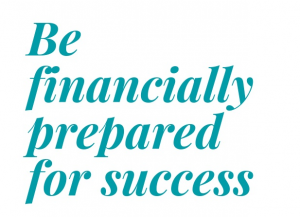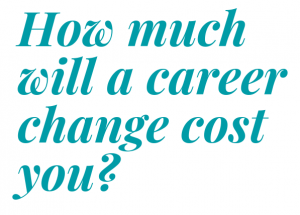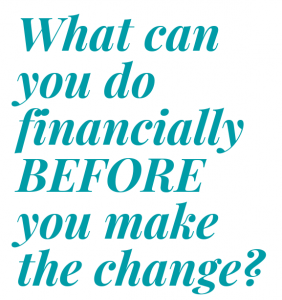Can you afford your lifestyle career?

The changing nature of technology, consumer behaviour and corporate policies has influenced an increase in part-time and work-for-yourself opportunities.
While the bright lights of flexibility, choice and creating your own success is very appealing, it is not without its risks – personally, professionally and financially.
According to a report by the Reserve Bank of Australia (RBA), one-third of total employment in Australia is part-time (less than 35 hours a week)*. Furthermore, 97% of all businesses are small and 62% of those are non-employing (sole traders)**.
Before you downsize or go solo, consider the financial consequences – better still, prepare first!

The cost will vary depending on your circumstances and how vast the change will be. Some considerations are:
Salary – this is the obvious one. How much will you be earning?
Super – reduced hours and income also mean reduced superannuation contributions and accruals. Accumulatively over time this can make a big impact on your retirement nest egg.
Additionally, for those working for themselves:
Benefits – Will you lose benefits from your current employer? For example any bonuses due, accrued sick leave, salary sacrificed items (mortgage, car leases), phone plan, subsidised gym memberships or day care and additional super if your current employer offers it.
Annual leave and public holiday pay – Working for yourself means exactly that – if you don’t work, you don’t get paid!
Possibility of irregular income – Irregularity of income may impact your cash flow, bills and loan repayments – and possibly your future lending options.
Changes in employment will be assessed by lenders and potentially hinder your future lending potential – whether it’s a new role with probationary periods to see out or working for yourself as a small businesses owner.
Of course as with most things in life, you take the good with the bad. There are many benefits to lifestyle careers.

1. Avoid debt before the change
Minimising your debts BEFORE you make a career change will give you more financial
breathing space and less financial stress in the future.
2. Save for an emergency fund
You don’t want to leave yourself short if any urgent or unexpected costs arise with life’s ups and downs.
3. Budget for your future
The more you save and budget for before a change, the easier and less stressful life will be.
The key to a successful career transition is setting a clear budget, timeline and strategy to achieve your goals.
We can help you set that strategy. Contact us on 1300 857 762 to discuss your current financial situation, loans and savings to work out the best options for you to make a successful career transition.
You will want to read our ‘Will the bank love your new job as much as you do?’ article before you change jobs
to see if your borrowing capacity may be impacted.
*. RBA The Rising Share of Part-time Employment, September Quarter 2017
**. Treasury, National Small Business Statistics 2017
Disclaimer: This article provides general information only and has been prepared without taking into account our objectives, financial situation or needs. We recommend that you consider whether
it is appropriate for your circumstances and your full financial situation will need to be reviewed prior to acceptance of any offer or product. It does not constitute legal, tax or financial advice and
you should always seek professional advice in relation to your individual circumstances. Subject to lenders terms and conditions, fees and charges and eligibility criteria apply. © 2018



